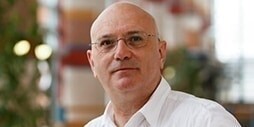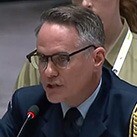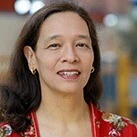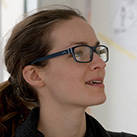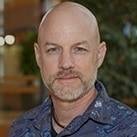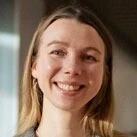About the Lab
Climate-related shifts continue to shape human conflict and put pressure on existing structures, resources and networks established to prevent and mitigate these scenarios.
At the Cambridge Peaceshaping and Climate Lab, we aim to stimulate versatile research, facilitate effective knowledge transfer and support informed practitioner action in order to counteract the challenges of modern peacekeeping.
The Lab fosters an interdisciplinary space which prioritises bridge-building and collaborative action to address the overlaps in climate change and human conflict. We explore cutting edge research and coordinate partnerships within and beyond academia in order to support the work of the wider peacekeeping community. We take a proactive approach, encouraging the pursuit of opportunities for resilience building and adaption that prevent the need to rely on outdated and inadequate ‘reactive’ policy and action.
Our activities are guided by the belief that inclusive social innovation, which is suited to and inspired by local knowledge, will ensure that societies are equipped to deal with climate shifts across a variety of contexts.
What is ‘peaceshaping’?
We define peaceshaping as the disruption of institutions which sustain enmity and the creation and preservation of institutions which constrain enmity and build amity. We see peaceshaping as a moral imperative and collective and individual responsibility. This includes the ability to listen to other perspectives, take account of the contextual nature of enmities, and be open to different types of institutionalising security and peace.
Our workstreams
4 work streams, informed by critical reviews of theory and practice, currently serve as the basis of the lab activities.
Our people
Neil Stott
Management Practice Professor of Social Innovation
DProf (Middlesex University)
Jarrod Pendlebury
Senior Strategist, Royal Australian Air Force
PhD (University of Sydney)
Jarrod, a senior strategist in the Royal Australian Air Force and Australia’s Military Advisor to the UN, spearheads the UN Department of Peace Operations Innovation Hub. This initiative connects researchers, innovators, and industry to address pressing challenges in global peace operations. With extensive operational experience as a pilot, Jarrod is a key figure in fostering innovation from experience. Active in academia, he focuses on the sociology of strategy and military organisation and holds degrees from the University of Sydney and the United States Air Force School of Advanced Air and Space Studies. He is also an Associate Research Fellow at Cambridge Judge Business School.
Nicole Helwig
Executive Director, Cambridge Centre for Social Innovation
DProf (Middlesex University)
Dr Nicole Helwig is Executive Director of the Cambridge Centre for Social Innovation. Prior to joining the centre, Nicole was an Honorary Practice Fellow, engaging with students in the MSt in Social Innovation.
Nicole works extensively with social ventures and social entrepreneurs as head of Cambridge Social Ventures. Earlier in her career she was founding manager of the Centre for Social Enterprise at Memorial University of Newfoundland, Canada where she also acted as programme co-ordinator for an MBA in social enterprise and entrepreneurship. She is an Adjunct Professor at Taylor’s University School of Liberal Arts and Sciences, Kuala Lumpur, Malaysia.
Nicole holds a Doctor of Professional Studies by Public Works from Middlesex University, an MBA from the University of Strathclyde (Malaysian international centre) and a BA from McGill University (humanistic studies programme). Nicole also holds a classical ballet pedagogue diploma from the Hungarian Dance Academy.
Michelle Fava Darlington
Head of Learning Design and Content Development
Junior Research Fellow, Cambridge School of Art; Co-founder, Thinking Through Drawing
Dr Michelle Fava holds a PhD in drawing and cognitive psychology from University of Loughborough (2014). Her work applies cognitive principles to education, facilitation and research methods. She has written and edited academic publications on drawing, visual literacy arts integration, and social innovation.
She is co-founder of the Thinking Through Drawing project, a research network and professional development provider that focuses on creativity and visual literacy in education and research.
Michelle’s present research with the Cambridge Centre for Social Innovation is looking into the factors influencing the longevity of Community Economic Development Organisations in the UK, and their roles within cross-sector partnerships.
Paul Tracey
Professor of Innovation and Organisation
PhD (Stirling University)
Bill DeMarco
Chief Innovation Development (A1UiX)/Assistant Professor, Air University, USAF
Bill is the Chief of Innovation Development for Air University (AUiX) and works to foster collaboration between AU students, faculty, and partners in the military, academia, and industry. This work is supported by his experience in founding and Chairing the Leadership Department and acting as an Assistant Professor at the Air Command and Staff College (ACSC). Bill, also an adjunct professor at Auburn University, served as a National Security Affairs Fellow at Stanford University’s Hoover Institution and is an Associate Research Fellow at Cambridge Judge Business School. He holds three master’s degrees and a doctorate from Middlesex University, London, and is a master coach with GiANT Worldwide leadership consulting.
Sophie Harbour
PhD student, Department of Politics and International Studies (POLIS), University of Cambridge
Sophie is a PhD student in the Department of Politics and International Studies (POLIS), University of Cambridge. She researches the concept of care and governance and completed her Masters in Political Theory at the University of Witwatersrand, South Africa with a focus on human rights in theory and practice. Sophie is the Editor of the King’s College Entrepreneurship Lab Blog Series and a member of Murray Edwards College.
Who we work with
- Boston Consulting Group
- University of Falmouth
- Air University: Air University Innovation Accelerator
- Centre for Social Impact (CSI UNSW), University of New South Wales in Australia
- Western Sydney University (WSU)
Boston Consulting Group (BCG)
The Boston Consulting Group (BCG) is a renowned global management consulting firm known for its strategic insights and innovative business solutions. Established in 1963, BCG has consistently been at the forefront of shaping and advising some of the world’s most influential organisations. With a commitment to driving lasting impact, BCG collaborates with clients across various industries, offering strategic advice, operational expertise, and transformative insights. The firm is recognised for its cutting-edge research, thought leadership, and a client-centric approach that addresses complex business challenges. BCG’s diverse team of consultants brings together a wealth of experience, helping clients navigate dynamic markets and achieve sustainable growth.
University of Falmouth
The University of Falmouth, located in Cornwall, United Kingdom, is a vibrant and innovative institution dedicated to creativity, entrepreneurship, and the arts. Established in 1902, it has evolved into a leading university with a strong focus on providing exceptional education in fields such as art, design, media, and performance. Falmouth University is renowned for its commitment to fostering creativity and pushing the boundaries of traditional disciplines. Its industry-focused approach and partnerships ensure graduates are well-equipped for success in the creative and cultural sectors.
Air University: Air University Innovation Accelerator (AUiX)
The Air University Innovation Accelerator (AUiX) is a dynamic program within Air University designed to foster creativity, entrepreneurship, and technological innovation within the United States Air Force. Through AUiX, military professionals and civilian leaders have the opportunity to collaborate, experiment, and develop cutting-edge solutions to complex challenges facing the air and space domains. By leveraging partnerships with industry, academia, and government agencies, AUiX provides access to resources, mentorship, and funding to accelerate the development and implementation of innovative ideas.
Centre for Social Impact (CSI UNSW)
The Centre for Social Impact (CSI UNSW), based at the University of New South Wales in Australia, aims to drive positive social change and tackle complex societal challenges including poverty, inequality, and sustainability. Through rigorous research, innovative programs, and partnerships with government, business, and community organisations, CSI UNSW works to create lasting impact and to foster an interdisciplinary approach which empowers individuals and communities. The Centre plays a pivotal role in shaping policies and practices for a more equitable and sustainable future.
Western Sydney University (WSU)
Based in New South Wales, Australia, the Western Sydney University (WSU) is committed to fostering innovation, social justice, and cultural diversity. This is reflected in its vibrant student community and inclusive learning environment. The university offers a diverse range of programs across various disciplines as well as cutting-edge facilities and resources. It is well known for its research excellence and industry partnerships.



